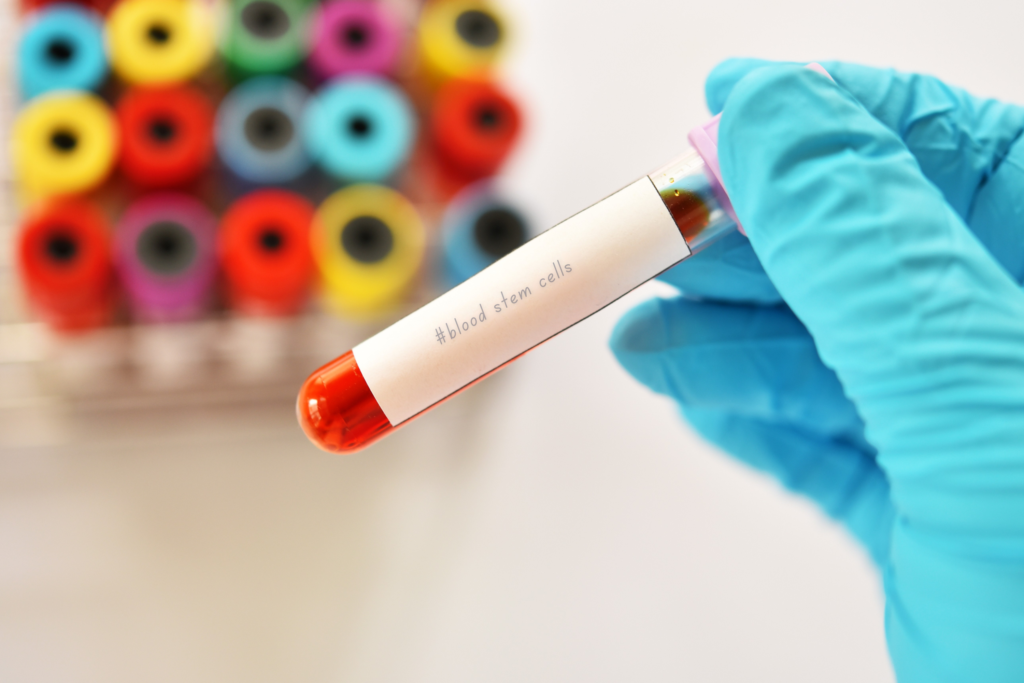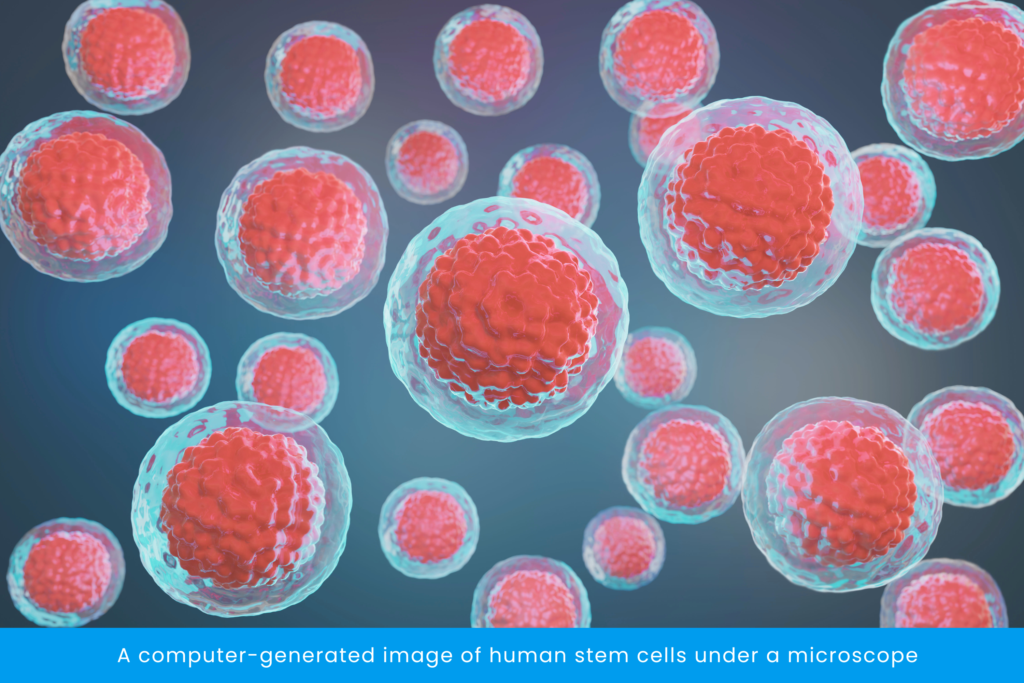Funding secured for clinical trial aiming to cure untreatable leukaemia in young adults with a new type of stem cell transplant.
Our findings challenge assumptions about the mechanism of transplantation and provide a unique opportunity to address research questions that have remained unanswered for decades.
Mark Williams
Institute Fellow | Honorary Consultant in Haematology at The Christie NHS Foundation Trust
Institute Fellow Dr Mark Williams has teamed up with Professor Robert Wynn, Consultant Paediatric Haematologist and Director of Paediatric Bone Marrow Transplant Programme at Manchester University NHS Foundation Trust (MFT), to develop and test a new type of stem cell transplant for people with acute myeloid leukaemia (AML).
Together with King’s College Hospital NHS Foundation Trust and the Institute of Cancer Research, they secured funding from Blood Cancer UK to set up a clinical trial that aims to transform stem cell transplantation.
Acute myeloid leukaemia (AML) is an aggressive form of blood cancer which can be very difficult to treat. Around 3,000 people are diagnosed with AML every year in the UK. For about 20% of those people with AML, chemotherapy doesn’t work, leaving these individuals with very few treatment options.
Stem cell transplants are a common treatment option. This is where stem cells (cells at an early stage of development in your body) that are damaged are replaced with new healthy stem cells. For most people with AML, stem cell transplant represents the only prospect of cure, yet unfortunately many individuals see their cancer return despite this treatment. So, there is a desperate need for better treatments for people with this disease.


Dr Williams, who leads the Leukaemia Immunology & Transplantation group at the Institute, and Prof Wynn set about investigating ways to improve stem cell transplants for these patients. They recently developed a new way of performing stem cell transplants that involves giving additional white blood cells – called granulocytes – in children following cord blood transplantation that is rich in stem cells.
Granulocytes are a complex mix of cell types that can have a beneficial or harmful impact on cancer cells. The team accidentally discovered a beneficial effect of these cells when involved in the transplants – the immune cells, known as T-cells, recovered much more quickly.
This treatment produced lasting results in children with treatment-resistant leukaemia, curing people for whom no treatment remained other than end of life care.
The researchers now plan to push the boundaries of existing treatment and further develop their new type of stem cell transplant by:
- Determining the safest and most effective dose of granulocytes.
- Testing how well this new treatment works for young adults with AML who have no other treatment options.
The researchers believe that there is huge potential to make this new approach even better by understanding how it works and further improving what already promises to be a transformational therapy.
If successful, this project could rapidly improve survival rates for people with this aggressive form of blood cancer. This treatment offers new hope for many young adults with AML who were previously told there were no further treatment options available.




